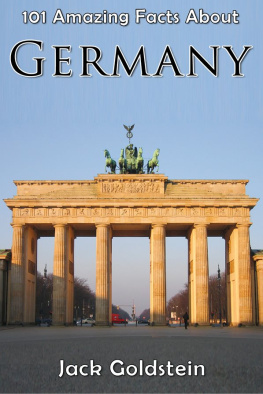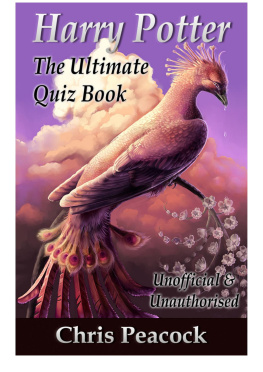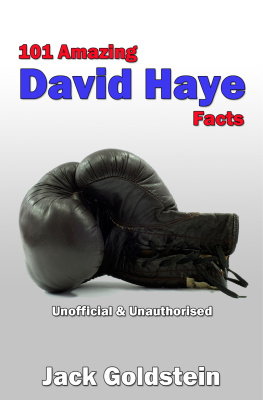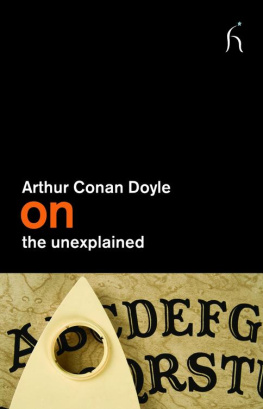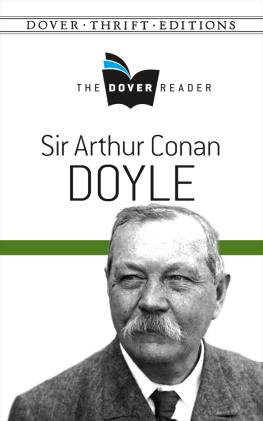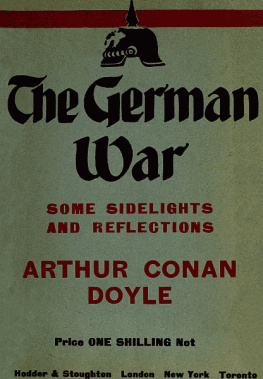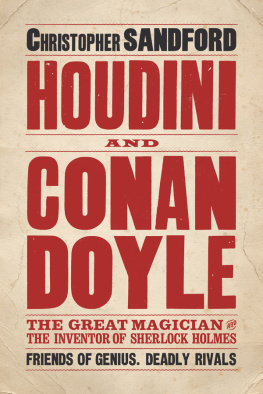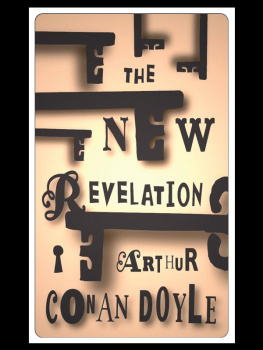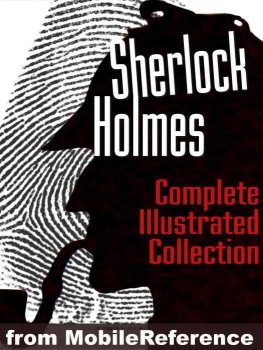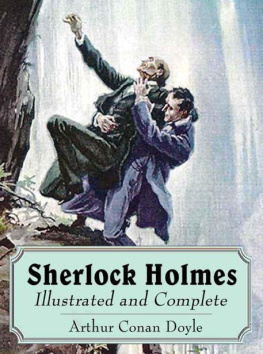Title Page
101 AMAZING FACTS ABOUT ARTHUR CONAN DOYLE
Jack Goldstein & Isabella Reese
Publisher Information
Published in 2014 by
Andrews UK Limited
www.andrewsuk.com
The rights of Jack Goldstein and Isabella Reese to be identified as the authors of this work have been asserted in accordance with the Copyright, Designs and Patents Act 1998
Copyright 2014 Jack Goldstein and Isabella Reese
All rights reserved. No part of this publication may be reproduced, stored in a retrieval system, or transmitted, in any form or by any means without the prior written permission of the publisher, nor be otherwise circulated in any form of binding or cover other than that in which it is published and without a similar condition being imposed on the subsequent purchaser. Any person who does so may be liable to criminal prosecution and civil claims for damages.
All information contained within this book has been researched from reputable sources. If any fact is found to be false, please contact the publishers, who will be happy to make corrections for future editions.
Introduction
Did you know that Sir Arthur Conan Doyle though Harry Houdini had real supernatural powers? Or that he felt that writing about Sherlock Holmes was holding him back from other more meaningful work? What made him seek a career in medicine? And who was the one player he bowled out during his cricketing career? This fascinating book contains over one hundred facts about Conan Doyle, organised into categories for easy reading. Whether you are studying him for a project or you are just interested in finding out more about the creator of the worlds greatest detective, this is the book for you.
Follow Jack Goldstein on Twitter @GoldsteinBooks
Visit Goldstein Books at www.jackgoldsteinbooks.com
Biographical Facts
- Arthur Conan Doyle was both on the 22 nd of May 1859.
- His full name is Arthur Ignatius Conan Doyle.
- Conan Doyle was born at 11 Picardy Place in Edinburgh, the capital of Scotland.
- He was the third born and eldest son of nine siblings. Two of his sisters sadly passed away in infancy, and his only brother died from the Spanish Flu aged 45.
- Arthurs first marriage was to Louisa Hawkins (who was also known as Touie) in 1885.
- His second was to Jean Elizabeth Leckie in 1907.
- Conan Doyle fathered a total of five children. Two were by his first wife and were called Mary Louise and Arthur Alleyne Kingsley. The other three were by his second wife; they were Denis Percy Stewart , Adrian Malcom and Jean Lena Annette.
- On the 7 th of July 1930 at the age of 71, Sir Arthur Conan Doyle suffered a heart attack and passed away.
- He died in the hall of his house , Windlesham Manor in Crowborough.
- On the 11 th of July 1930, he was buried in Windleshams rose garden, although he was later reunited with his wife in Minstead churchyard in the New Forest in Hampshire.
Conan Doyles Work
- Arthur wrote four novels relating to Sherlock Holmes, a detective who uses many things like footprints, human remains, bicycle tracks, tobacco ash and many more to solve crime. These novels are A Study in Scarlet (1887), The Sign of Four (1890), The Hound of the Baskervilles (1902) and The Valley of Fear (1915).
- Conan Doyle also wrote 56 short stories about Holmes, which are combined into five books. These are The Adventures of Sherlock Holmes (1892), The Memoirs of Sherlock Holmes (1894), The Return of Sherlock Holmes (1905), His Last Bow (1917) and The Case-Book of Sherlock Holmes (1927).
- Professor Challenger was a character he also created and about whom he wrote five books. In his own words, Conan Doyle describes Professor Challenger thusly: His appearance made me gasp. I was prepared for something strange, but not for so overpowering a personality as this. It was his size, which took ones breath away - his size and his imposing presence. His head was enormous, the largest I have ever seen upon a human being. I am sure that his top hat, had I ventured to don it, would have slipped over me entirely and rested on my shoulders. He had the face and beard, which I associate with an Assyrian bull; the former florid, the latter so black as almost to have suspicion of blue, spade-shaped and rippling down in front in a long, curving wisp over his massive forehead. The eyes were blue-grey under great black tufts, very clear, very critical, and very masterful. A huge spread of shoulders and a chest like a barrel were the other parts of him which appeared above the table, save for two enormous hands covered with long black hair. This and a bellowing, roaring, rumbling voice made up my first impression of the notorious Professor Challenger.
- The five Professor Challenger books are The Lost World (1912), The Poison Belt (1913), The Land of Mist (1926), The Disintegration Machine (1928), and When the World Screamed (1929).
- Conan Doyle also wrote more than forty short stories featuring a whole range of fictional characters which were published between 1879 and 1930.
- He also wrote a selection of stage plays, including Jane Annie (1893 - in fact this is a comic opera written with Peter Pan author J.M. Barrie), A Question of Diplomacy (1895), Brothers (1899), A Duet: a Duologue (1903), The Story of Waterloo (1907), The Fires of Fate (1909), Brigadier Gerard (1910), A Pot of Caviare (1912), The Speckled Band (1912) The House of Temperley (1912) and Sherlock Holmes (1922 - a four act play featuring the famous detective written with William Gillette).
- The British War Propaganda Bureau organised a secret meeting of the countrys top writers to discuss the best way to promote British interests during her various wars. The group included Conan Doyle as well as Thomas Hardy, Rudyard Kipling, H.G. Wells and other well-known authors of the era. It wasnt until 1935 that the activities of the bureau became public knowledge, by which time Arthur had written pamphlets such as The War in South Africa: Its Cause and Conduct (1902), Great Britain and the Next War (1914), The Treatment of our Prisoners (1915) and more.
- Conan Doyle even turned his hand to poetry with Songs of Action (1898), Songs of the Road (1911), The Guards Came Through and Other Poems (1919) and more.
- He wrote various memoirs detailing his belief in spiritualism and the details of his trips to America. These include The Wanderings of a Spiritualist (1921), Our American Adventure (1923), Our Second American Adventure (1924) and Memories and Adventures (1924). In addition to this, he wrote a number of works dealing with the concepts of spiritualism and other paranormal phenomena, including The New Revelation (1918), The Vital Message (1919), The Coming of the Fairies (1921), The Case for Spirit Photography (1925), The History of Spiritualism (1926) and The Edge of the Unknown (1930).
- He also wrote several books about the war and the army, including The Great Boer War (1900), The Crime of the Congo (1909) and The British Campaign in France and Flanders (four volumes written between 1916 and 1920).
General Facts
- Arthurs parents were both of Irish descent; his father Charles Altamont Dole and his mother Mary Foley.
- Charles was a terrible alcoholic, an affliction that greatly impacted on the rest of his family. He and Mary were forced to separate and the children were temporarily housed across Edinburgh in 1864. In 1867 the family began living together again, albeit in squalid conditions in a flat at number 3 Sciennes Place.
- Arthur was lucky enough to be supported by his wealthy uncles and from the age of nine was sent to Hodder Place, a Roman Catholic Jesuit preparatory school. Four years later he attended Stonyhurst College, which he left in 1875.
- It was expected that Arthur would follow a career of the artistic kind based on family tradition; however he actually decided to study medicine. This stemmed from the influence of Dr Bryan Charles Walker, a young lodger whom his mother took in when they were struggling to make ends meet.
Next page


